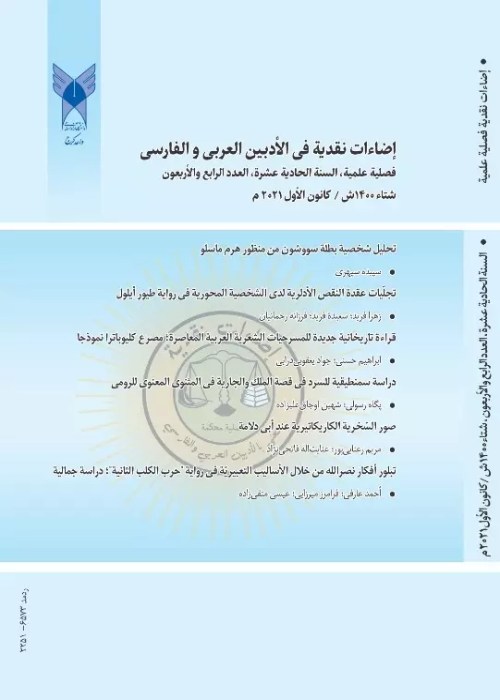The Reflection of Triple-Narratives of Redemption in Works of Mikha'ilNa'ima and Ahmad Shamlou from a Lyotardian perspective
The issue of emancipation in contemporary times became more important with the rise of the intellectual movement and scientific advancement. The French philosopher and postmodernist, Jean-François Lyotard, considers redemption as the most important narrative, and is of the view that this narrativeembraces three parts, namely, the Marxist historical narrative,the Christian religious narrative, and the intellectual evolution narrative. In this era,committed literature, which is concerned with social and individual needs, was booming due to the effects of political issues. This type of literature is widely available in Persian and Arabic literature as well-known writers, includingMikha'ilNa'ima and Ahmad Shamlouhave produced a large number of writings with regard to human redemption in terms ofanthropological, philosophical, political and social issues. The present study attempts to bring to the fore and examine the above-mentioned narratives in the writings of these two literary scholars. This study examines howthe three narrativesare reflected in Persian and Arabic literature and analyzes the freedom thought in the works of Mikha'ilNa'ima and Ahmad Shamlou from a Lyotardianperspective. The overall results suggest that three redemption narratives have been constructed in the contemporary era and they are widely present in Na'ima and Shamlou’s works.


